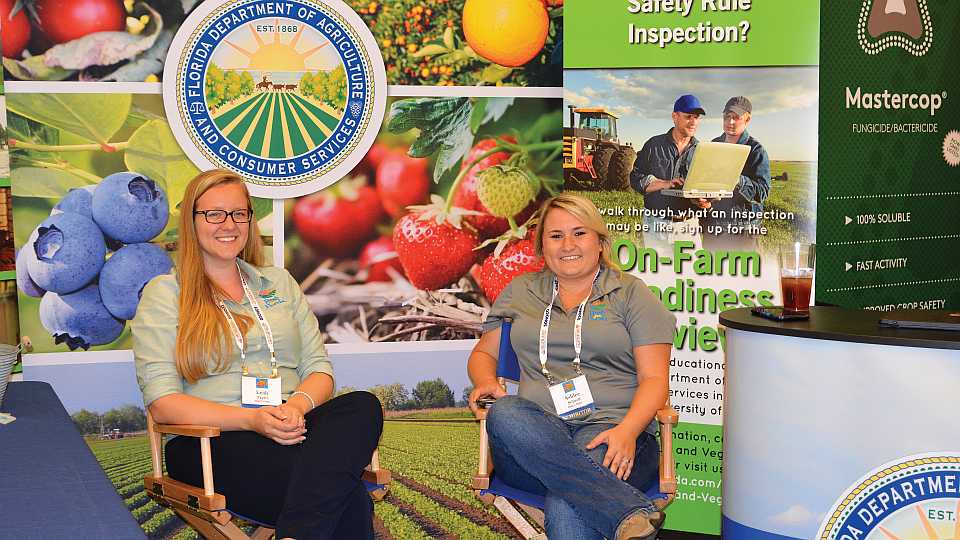Produce Safety Inspections Are Heading to Your Farm

The Florida Department of Agriculture and Consumer Services spreads the word about the Food Safety Modernization Act. Leah Tapley (left) and Ashlee Stillwell (right) said farm inspections are to start soon. If you are a larger, leafy greens grower, you will be first in line.
Photo by Frank Giles
Food Safety and Modernization Act (FSMA) produce safety inspections have been underway since spring for larger farms (with annual sales north of $500,000). If you haven’t yet had the pleasure of an FDA inspector calling at the farm gate, there’s still time to get all your ducks in a row.
Small farm inspections – those with annual average produce sales in the $250,000 – $500,000 range – begin in Spring 2020.
Sonia Salas, Assistant VP of Food Safety, Science & Technology, with the Western Growers Association (WGA) out in Salinas, CA, says that thus far, state inspectors are working through the inspection process with ag operations “in a positive way.”
Readiness Reviews Smooth the Way
Salas recommends growers get out in front of the inspection process.
Sign up for on-farm readiness reviews when you can and perform self-assessments. Most states offer reviews. Ohio’s Department of Ag, for instance, announced free pre-inspection consultations for produce growers.
On-farm readiness reviews give growers an opportunity to get an unofficial assessment of their operations. And they help them work towards any needed improvement, Salas says.
“We also encourage operations to conduct self-assessments,” she says. “Make sure all required documentation is in place. And that employees have been trained on produce safety basics and relevant topics to their jobs.”
Where to Find Help
WGA has resources available online for growers as well, according to Salas.
“Strong training programs and proper and timely documentation are helpful to engage people and to communicate and facilitate compliance with FSMA Produce Safety requirements,” she says.
Growers have access to several tools and resources through their trade associations (for instance, WGAs’ FSMA portal), universities (Cooperative Extension) and government entities (CDFA, AZDA, etc.).
Stay engaged with officials throughout the entire process, she recommends. And make sure you use all the resources available to maintain inspection readiness. Those simple, if tedious, steps help growers stay ahead of the inspection requirements.
“For the most part, we understand that those growers who have been engaged and expecting FSMA Produce Safety inspections have done well during their first inspection,” Salas says.
Informational videos and additional details on on-farm readiness reviews can be found at www.wga.com/ofrrs.










